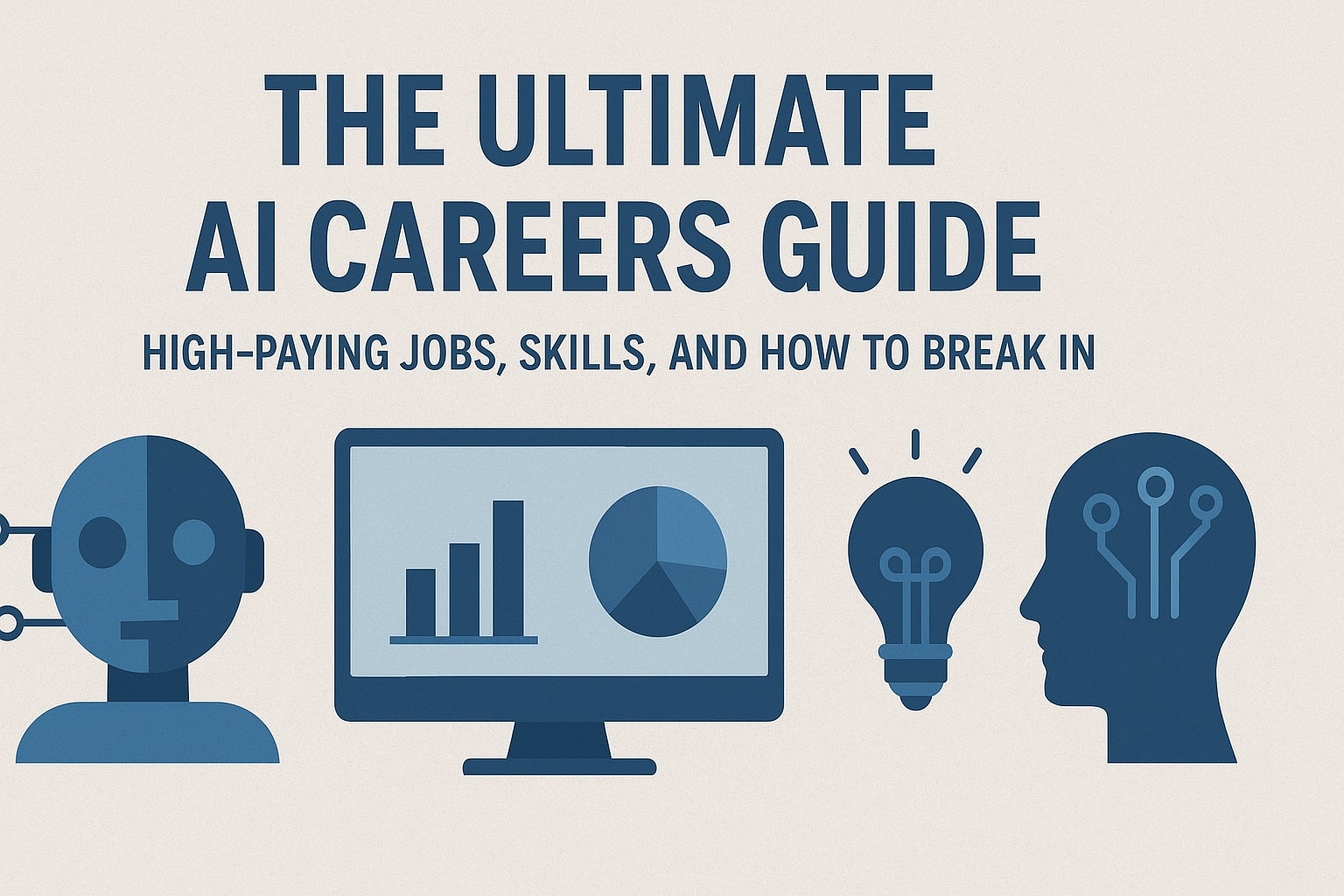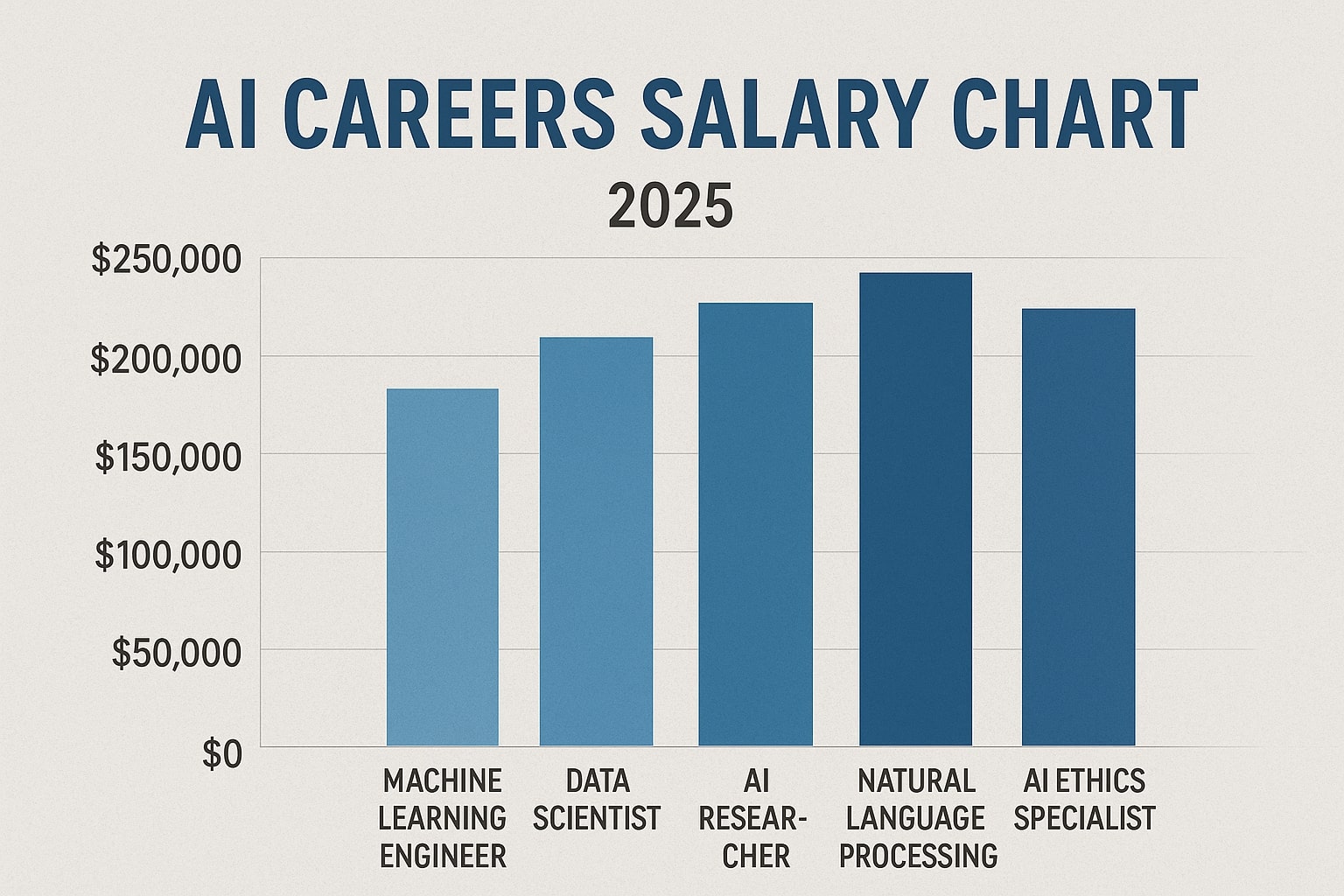The term “Artificial Intelligence” has exploded from science fiction into a powerful economic engine, creating a seismic shift in the global job market and launching some of the most exciting AI careers available today. With companies across every industry racing to integrate AI, the demand for skilled professionals has skyrocketed, leading to lucrative salaries and unprecedented opportunities for those who know how to get started.
If you’re wondering how to pivot into this dynamic field, you’re in the right place. This comprehensive AI careers guide will map out the landscape, from the most in-demand roles and their earning potential to the exact skills you need to build a future-proof career in artificial intelligence.
Why Pursue a Career in AI? The Numbers Speak for Themselves
The AI revolution isn’t coming; it’s already here. According to a report by McKinsey Global Institute, AI could potentially deliver an additional $13 trillion to global economic output by 2030. This growth is directly fueling job creation for countless AI careers.
High Demand: The World Economic Forum’s Future of Jobs Report consistently highlights AI and machine learning specialists as the fastest-growing jobs.
Lucrative Salaries: Due to a significant talent shortage, AI professionals command top dollar. Data from Glassdoor shows the average base pay for an AI Engineer in the United States is well over $120,000 per year, with senior roles often exceeding $200,000.
Diverse Applications: AI isn’t confined to tech giants. From healthcare and finance to agriculture and entertainment, your skills can make an impact anywhere.
Top 7 High-Paying AI Careers to Target in 2024
Let’s break down some of the most sought-after AI jobs, their responsibilities, and typical salary ranges.
1. Machine Learning Engineer
The ML Engineer is the architect of AI systems. They design, build, and deploy scalable machine learning models that power everything from recommendation engines to fraud detection systems. This is one of the most foundational AI careers.
Key Skills: Python, PyTorch/TensorFlow, data modeling, software engineering, cloud platforms (AWS, GCP, Azure).
Average Salary: $125,000 – $175,000 (Source: Levels.fyi)
2. AI Research Scientist
This is a highly theoretical role focused on pushing the boundaries of what’s possible. Research Scientists work on developing new algorithms and advancing the core science behind AI, often within labs at companies like OpenAI, Google DeepMind, or academia.
Key Skills: Advanced mathematics (linear algebra, calculus), PhD often required, deep knowledge of ML theory, published research.
Average Salary: $150,000 – $250,000+
3. Data Scientist
While closely related, Data Scientists often focus on extracting insights from data to drive business decisions. They use statistical analysis and ML to solve complex problems, making them crucial for strategic planning and a classic AI career path.
Key Skills: SQL, Python/R, statistical analysis, data visualization (Tableau, Power BI), storytelling.
Average Salary: $100,000 – $155,000 (Source: Burtch Works Salary Report)
4. Computer Vision Engineer
These specialists teach machines to “see” and interpret visual information from the world. Their work is vital for self-driving cars, facial recognition systems, medical image analysis, and augmented reality.
Key Skills: OpenCV, CNN (Convolutional Neural Networks), image processing, deep learning, C++/Python.
Average Salary: $130,000 – $185,000
5. NLP (Natural Language Processing) Engineer
NLP Engineers bridge the gap between human language and computer understanding. They build models for machine translation, sentiment analysis, chatbots (like ChatGPT), and voice-activated assistants.
Key Skills: NLP libraries (spaCy, NLTK, Hugging Face Transformers), linguistics fundamentals, text representation techniques.
Average Salary: $120,000 – $175,000
6. AI Product Manager
This role sits at the intersection of business, technology, and user needs. The AI PM translates customer problems into technical requirements, prioritizes the AI product roadmap, and ensures the final product delivers real value.
Key Skills: Product management, understanding of AI capabilities/limitations, cross-functional leadership, market analysis.
Average Salary: $115,000 – $170,000
7. Prompt Engineer (The Emerging Role)
A new and fascinating role, the Prompt Engineer specializes in crafting effective instructions (prompts) for large language models (LLMs) like GPT-4 to generate desired outputs. It requires creativity, linguistic skill, and a deep understanding of how these models work, making it one of the most unique new AI careers.
Key Skills: Linguistics, creative writing, iterative testing, understanding of LLM architectures.
Average Salary: $100,000 – $150,000+ (Salaries can be very high for experts, as reported by The Washington Post)
The Essential AI Skillset: Your Foundation for Success in AI Careers
While each role has its specialties, a core set of skills is non-negotiable for anyone entering the field of artificial intelligence jobs.
Technical Skills:
Programming: Python is the undisputed king of AI/ML due to its simplicity and powerful libraries (TensorFlow, PyTorch, Scikit-learn). R, Java, and C++ are also valuable.
Mathematics & Statistics: A solid grasp of linear algebra, calculus, probability, and statistics is crucial for understanding how algorithms work under the hood.
Machine Learning Libraries: Hands-on experience with frameworks like TensorFlow and PyTorch is a must for building models.
Big Data Technologies: The ability to work with massive datasets using tools like Spark, Hadoop, and SQL databases is highly valued.
Soft Skills:
Problem-Solving: AI is fundamentally about solving complex puzzles.
Critical Thinking: The ability to question model outputs, identify bias, and interpret results accurately is vital.
Communication: You must be able to explain complex technical concepts to non-technical stakeholders.
Your 5-Step Action Plan to Break into AI Careers
Ready to start your journey? Follow this roadmap to launch your AI career.
Solidify Your Foundation: Start with the basics of Python and high-school level math. Platforms like freeCodeCamp and Khan Academy offer excellent free resources. For a more structured path, check out our guide on the best online courses for beginners.
Dive into Machine Learning: Take structured online courses. The Machine Learning course by Andrew Ng on Coursera is a legendary starting point for many in the field.
Build a Portfolio of Projects: Theory isn’t enough. Build and, crucially, publicly share your projects on GitHub. Start with simple models (e.g., predicting house prices) and progress to more complex problems. This is your new resume.
Specialize and Deepen Your Knowledge: Choose a sub-field that excites you (e.g., NLP, Computer Vision) and take advanced courses. Consider pursuing a formal credential like a Google Cloud’s AI certifications or even a graduate degree for research-oriented roles.
Network and Engage with the Community: Follow AI researchers on Twitter, join subreddits like r/MachineLearning, attend virtual conferences, and contribute to open-source projects. Networking can open doors to unadvertised opportunities.
The Future of AI Careers is Now
A career in AI is more than just a job; it’s a chance to be at the forefront of a technological transformation that is reshaping our world. The path requires dedication and continuous learning, but the rewards—intellectual challenge, financial stability, and the chance to build the future—are immense.
The best time to start was yesterday. The next best time is today.
What area of AI are you most excited about? Share your thoughts in the comments below! And for more daily insights, explore our other AI tools and guides.

